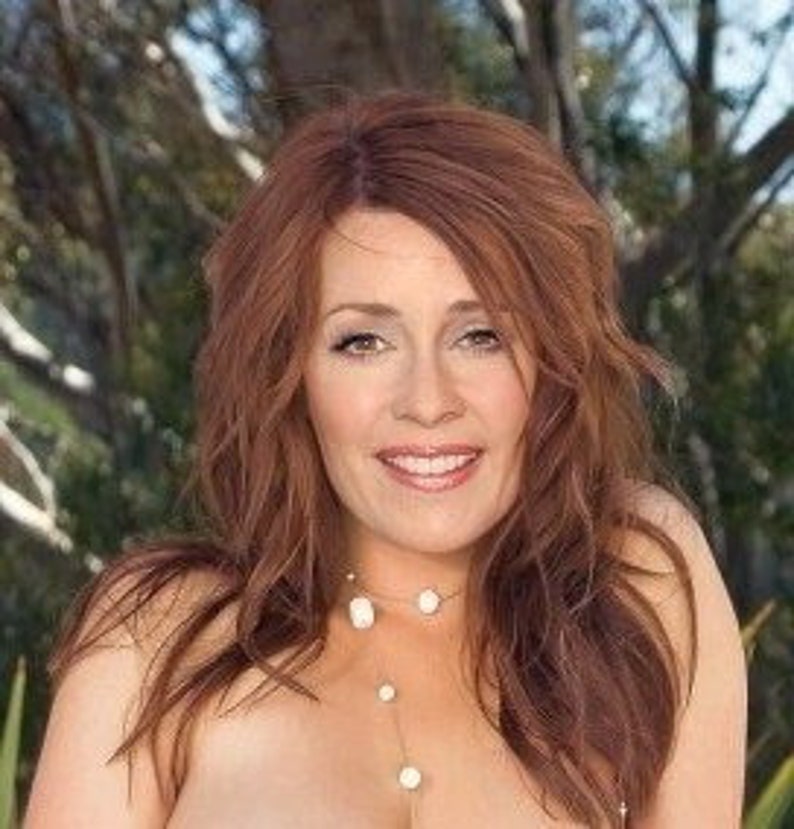Is it possible for a seemingly private moment to become a public spectacle, blurring the lines between celebrity and intimacy? The recent sharing of a photograph, depicting the actress Patricia Heaton and a group of friends enjoying a nude bath, has ignited a firestorm of conversation, forcing us to confront the ever-shifting landscape of celebrity culture and the increasing prevalence of online content.
The image, initially shared on social media, showed the 66-year-old Heaton and her companions in a spacious hotel bathtub, their bodies unclothed save for a few strategically placed pieces of jewelry. This seemingly innocuous act of personal expression, however, was quickly met with a deluge of attention, sparking debates about privacy, consent, and the very nature of fame in the digital age. The photo, along with related search terms such as "celebrity nude pic Patricia Heaton," "Patricia Heaton naked," and queries about specific scenes from her work, flooded the internet, underscoring the insatiable public appetite for glimpses into the lives of those in the spotlight. The actress's willingness to share such a candid moment has undoubtedly generated both admiration and criticism.
| Category | Details |
|---|---|
| Full Name | Patricia Helen Heaton |
| Date of Birth | March 4, 1958 |
| Place of Birth | Bay Village, Ohio, USA |
| Occupation | Actress, Model, Comedian, Producer |
| Known For | Playing Debra Barone in "Everybody Loves Raymond" |
| Notable Awards | Two Primetime Emmy Awards for "Everybody Loves Raymond" and one Daytime Emmy for hosting "Patricia Heaton Parties" |
| Spouse(s) | David Hunt (m. 1998) |
| Children | Four sons |
| Education | Ohio State University (attended) |
| Years Active | 1980Present |
| Key Roles | Debra Barone ("Everybody Loves Raymond"), Frankie Heck ("The Middle") |
| Other Works | "Room for Two", "Women of the House", "Beethoven", "Memoirs of an Invisible Man", "The Goodbye Girl", "Back to You", "Patricia Heaton Parties" |
| Reference | Wikipedia |
Heaton's career trajectory has been marked by notable successes and a consistently strong presence in both television and film. Born in Bay Village, Ohio, she first stepped into the spotlight with her role in the CBS sitcom "Everybody Loves Raymond," where she embodied the character of Debra Barone, the long-suffering but loving wife of the show's protagonist, Ray Barone, from 1996 to 2005. This role catapulted her to international fame, earning her two Primetime Emmy Awards and solidifying her position as a comedic force. Her performance was praised for its relatability and wit, resonating with audiences across the globe. It is a testament to her impact that search queries consistently link her name with the iconic role, the echoes of her performance still reverberating across the internet.
Following the end of "Everybody Loves Raymond," Heaton continued to work steadily, appearing in the Fox comedy series "Back to You" opposite Kelsey Grammer in 2007. The show, however, was short-lived, cancelled in 2008. Undeterred, Heaton further expanded her repertoire with roles in various film projects. She also took on the role of Frankie Heck in the ABC sitcom "The Middle" which aired from 2009 to 2018. This performance once again demonstrated her ability to connect with audiences, offering a humorous yet heartwarming portrayal of a suburban mother trying to navigate the complexities of family life.
The recent photo is just a single instance of a recurring theme in the modern media landscape. There is an undeniable fascination with the private lives of celebrities, often amplified by social media platforms. This fascination can lead to both positive and negative consequences, as it can foster a sense of connection but can also expose individuals to intense scrutiny and potential breaches of privacy. The internet, with its vast reach and rapid dissemination capabilities, has become a breeding ground for both appreciation and unwanted attention. The sheer volume of related searches, including those categorized as "nude celebrity mp4 movie clips of Patricia Heaton", "watch sexy Patricia Heaton real nude in hot porn videos & sex tapes", and similar phrases, is a reflection of the digital echo chamber in which such images can be amplified and distorted.
This incident prompts consideration of the ethical implications of the public's engagement with such content. While some might view the photo as a harmless expression of personal freedom, others may perceive it as a violation of privacy, particularly considering the potential for the image to be taken out of context or exploited. The conversation must therefore extend to the nuances of consent and the responsibilities of both the individuals sharing the content and those consuming it.
The photo and the related searches highlight the complexities surrounding the objectification of celebrities. The focus on physical appearance, particularly through phrases like "Patricia Heaton is one of the pretty American actresses with big bouncy boobs" or referencing "hard nipples," serves as a stark reminder of the industrys tendency to emphasize physical attributes. It invites a debate about the potential for such content to reinforce unrealistic beauty standards and contribute to the sexualization of women. The very fact that search terms related to nudity are so readily available underscores the challenges of navigating the digital world. The sheer volume of content tagged in this manner is indicative of the vast and often unregulated nature of the internet. Sites such as xvideos and xhamster, cited in the search results, underscore the accessibility of adult content, a persistent feature of online media.
The various online search results are a complex reflection of public interest. The fact that searches include phrases like "Patricia Heaton nude scene in everybody loves raymond" and "Watch Patricia Heaton's underwear scene" is a consequence of the show's broad reach and enduring popularity. Additionally, it also underscores how the content has been viewed and interpreted. These terms, although seemingly specific to the show, tap into a wider trend of viewing and valuing celebrity appearances. The focus on specific scenes, such as the "7 seconds" underwear scene, highlights the way these fragments are extracted and consumed by the audience. The reference to "Image 1836894 debra barone everybody loves raymond patricia heaton ray romano raymond barone fakes" indicates the presence of manipulated or fabricated content, a pressing concern in the modern digital age.
Heatons success has undoubtedly played a role in shaping how she is now perceived. She has consistently won over audiences with her performances, but the online discussions related to her portrayalsoften referencing her role in the TV series Everybody Loves Raymondare indicative of how deeply her work has resonated. The frequent references to her as Debra Barone, a character known for her relatable struggles and comedic timing, are a constant reminder of her professional triumphs. The Emmy wins further cemented this success, leading to the creation of a large and dedicated fan base.
Moreover, the incident underscores the changing dynamics of media consumption. The search terms related to Heaton's body, with phrases like "She's topless with bare boobs and hard nipples," are symptomatic of the pervasive sexualization of female celebrities in the digital age. These instances are not merely isolated incidents but are reflective of broader societal trends and attitudes. They highlight the intricate relationship between celebrity, privacy, and the pervasive reach of social media. The sharing of the nude photo, whether deliberate or inadvertent, will continue to serve as a point of discussion concerning the boundaries of public and private lives. The image and the associated online content offer a revealing window into the ongoing dialogue about celebrity, sexuality, and the relentless pursuit of sensationalism in the digital era.
The focus of the incident on online sources that are often driven by profit, as well as a disregard for personal boundaries, also is a topic of serious concern. The content of the search results highlights the vulnerability of public figures in the digital age. In addition to the potential for privacy violations, the incident also brings to light the ethics of the publics consumption of such content. What seems like a private act, made public through the reach of social media, has led to many different views. Some will view the photograph as harmless, while others may view it as a violation of privacy. The photo, and the subsequent actions it triggered, is a clear reflection of our times.
The entire episode encourages consideration of the boundaries between public and private, and what should be deemed appropriate in today's connected world. Ultimately, it underscores the need for a thoughtful approach to the way we engage with digital content and the impact it has on our perceptions of celebrities, privacy, and the rapidly evolving digital landscape. It is a reflection of the intricate relationship between celebrity, privacy, and the pervasive reach of social media. The episode encourages a critical assessment of the ethical implications of the digital age, underscoring the need for ongoing discussions and awareness regarding privacy, consent, and the impact of online content.


